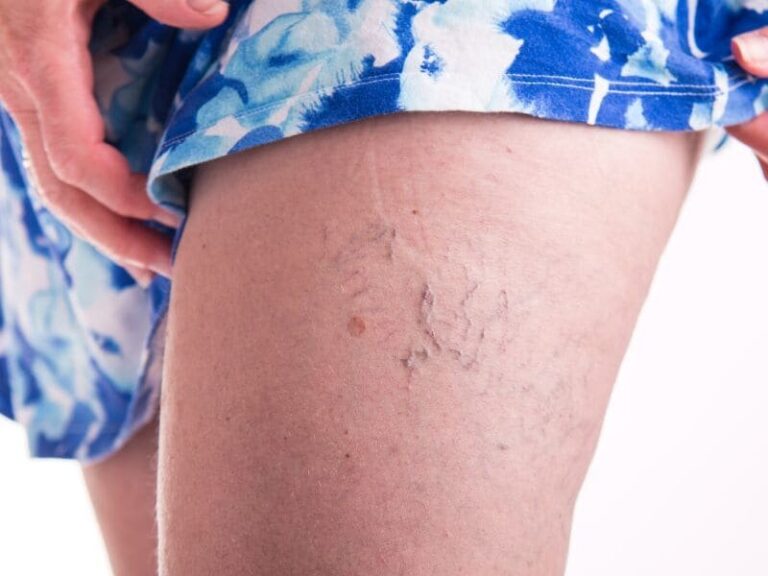More than 40 million Americans suffer from varicose veins, which can be both unsightly and painful, but the best way to get rid of them isn’t clear.
Now, British researchers report that laser removal and surgery appear to be better options than ultrasound-guided foam sclerotherapy. All three treatments effectively close the swollen, twisted vein.
“Minimally invasive treatment for varicose veins that destroys the vein with heat using a laser is the most effective treatment,” said lead researcher Dr Julie Brittenden, professor of vascular surgery at the University of Glasgow.
When Brittenden talks about the best treatment, she’s referring to patient satisfaction five years after the procedure.
The problem with getting rid of varicose veins is that even when one vein is damaged, other varicose veins can appear over time.
“Varicose veins are a chronic condition, and new veins often appear after treatment,” Brittenden said.
Treatments for varicose veins divert blood from the affected veins to others. When this happens, the veins disappear.
In laser ablation, the doctor uses the heat of a laser to close the affected vein. This procedure involves a small cut in the skin and compression of the foot after the procedure.
The surgery involves inserting a tube into the vein, which closes off the vein. Recovery usually takes a few weeks.
In foam sclerotherapy, the surgeon injects a solution into the vein, which scars it, forcing the blood to find an alternate route. This procedure usually takes several sessions and can be done in the doctor’s office.
The differences in quality of life seen in the study are likely related to fewer patients developing new varicose veins with laser therapy and surgery than with foam, Brittenden said.
“Laser ablation was comparable to surgery in terms of quality of life and had the highest chance of being cost-effective of the three treatments,” he said.
For the study, Brittenden and her colleagues randomly assigned nearly 800 parents to laser ablation, foam sclerotherapy or surgery.
Of nearly 600 patients who completed a quality-of-life questionnaire five years after surgery, laser ablation and surgery were preferred over foam sclerotherapy.
“For patients who have varicose veins, thermal ablation [in this case, laser] are the preferred treatment options in terms of both quality of life and cost-effectiveness, and patients should be offered this as first-line treatment,” Brittenden said.
However, treatment options can vary based on cost, according to a US surgeon who was not involved in the study.
No matter which procedure you choose, your insurance may not cover it, said Dr. Peter Gloviczki, a retired professor of vascular surgery at the Mayo Clinic in Rochester, Minn.
This is because many people with varicose veins have no symptoms, such as pain or swollen ulcers in their legs. They just find the veins unsightly and want to get rid of them.
If any of the procedures are done for cosmetic reasons only, most insurances, including Medicare, will not cover it.
Insurance usually covers these procedures when they are done to relieve symptoms. Some companies, however, may not cover the costs until other methods, such as compassion socks and over-the-counter pain relievers, are tried, Gloviczki said.
You may not be covered if you don’t use an accredited vein clinic or vascular surgeon, he added.
“There’s an increasing number of limitations that you can kind of understand,” Glowiczki said. “Because with 40 million Americans with varicose veins, that’s a big burden on insurance companies.”
These restrictions are an attempt by health insurance companies to weed out those who are cosmetically targeted from those who are truly suffering, Gloviczki said.
If you pay for the procedure yourself, you can expect to pay between $1,500 and $3,000, according to Medicine Net.
The report was published on September 4 at New England Journal of Medicine.
More information:
For more on varicose veins, head to US National Heart, Lung, and Blood Institute.
Copyright © 2019 Health Day. All rights reserved.
Reference: What works best against varicose veins? (2019, September 5) retrieved February 20, 2024 by
This document is subject to copyright. Except for any fair dealing for purposes of private study or research, no part may be reproduced without written permission. Content is provided for informational purposes only.


